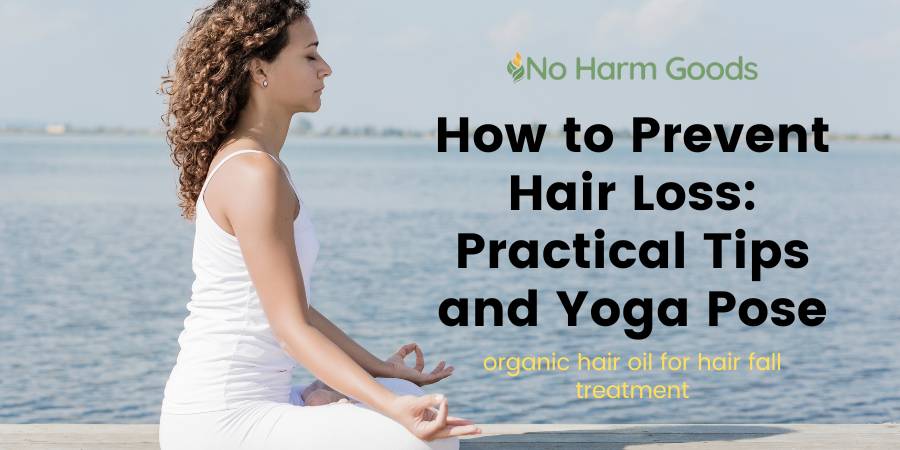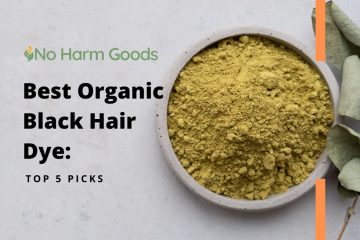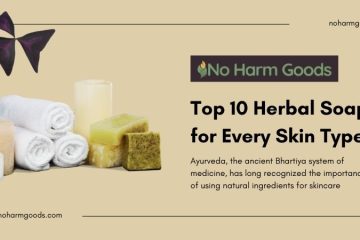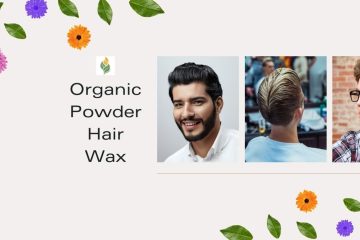Hair fall is a common problem that affects people of all ages. According to a study by the Medihair Global study, 25% of men experience hair loss by the age of 21, and 45% of women experience hair fall issues at some point in their life.
There are many reasons for hair loss, including genetics, stress, diet, and medical conditions. However, there are also many things you can do to prevent hair loss and promote hair growth.
Hair loss is a complex issue with many contributing factors.
Some of the most common causes include:
- Heat styling: Excessive heat from blow dryers, flat irons, and curling irons can damage and weaken hair, leading to breakage and loss.
- Harsh chemicals: Shampoos, conditioners, and hair dyes that contain harsh chemicals can also damage hair and contribute to hair loss.
- Stress: Stress can cause hair follicles to enter a resting phase, which can lead to temporary hair loss.
- Diet: A diet that is lacking in essential nutrients, such as protein, iron, and zinc, can also lead to hair loss.
- Blood circulation: Poor blood circulation to the scalp can also contribute to hair loss.
- Rough hair handling can lead to hair breakage and loss. This includes vigorous rubbing, brushing, and tying wet hair. Wet hair is more fragile than dry hair, so it is important to be gentle when handling it.
It is important to note that hair loss can also be caused by underlying medical conditions, such as thyroid disease, alopecia areata, and lupus. If you are experiencing hair loss, it is important to see a doctor to rule out any underlying medical conditions.
Tips to reduce hair fall
Here are some tips on how to reduce hair fall:
- Eat a healthy diet. A healthy diet is essential for overall health and well-being, including hair health. Make sure to eat plenty of fruits, vegetables, and whole grains. You should also include protein-rich foods in your diet, such as lean meat, poultry, fish, eggs, legumes, and nuts.
- Get regular exercise. Exercise helps to improve blood circulation, which can promote hair growth. Aim for at least 30 minutes of moderate-intensity exercise most days of the week.
- Manage stress. Stress can contribute to hair loss. Find healthy ways to manage stress, such as exercise, yoga, or meditation.
- Avoid harsh hair treatments. Heat styling tools, chemical dyes, and bleach can damage hair and lead to hair loss. Use these products sparingly and avoid using them on a daily basis.
- Use gentle hair care products. Choose shampoos and conditioners that are free of harsh sulfates and parabens. Avoid using products that contain alcohol, as this can dry out your hair and scalp.
- Massage your scalp regularly. Massaging your scalp helps to increase blood circulation and promote hair growth. You can massage your scalp with your fingers or use a scalp massager.
Ways to Prevent Hair Loss
Hair loss is a common problem that can affect people of all ages. It can be caused by a variety of factors, including genetics, hormones, stress, and medical conditions. While there is no cure for hair loss, there are things you can do to prevent it and slow down the process.
Improve blood circulation
Poor blood circulation to the scalp can restrict the delivery of nutrients and oxygen to the hair follicles, leading to hair loss. There are a number of things you can do to improve blood circulation to the scalp, including:
- Eating a healthy diet: Make sure to eat a balanced diet that includes all the essential vitamins, minerals, and antioxidants. This will help to ensure that your scalp and hair follicles are getting the nutrients they need to be healthy.
- Exercising regularly: Exercise helps to improve blood circulation throughout the body, including the scalp. Aim for at least 30 minutes of moderate-intensity exercise most days of the week.
- Massaging your scalp: Massaging your scalp with oil can help to stimulate blood flow and promote hair growth. Use a natural oil, such as coconut oil, mustard oil, or almond oil. Massage your scalp gently for 3-4 minutes, 3-4 times a week.
Eat foods that block DHT
DHT is a hormone that can contribute to hair loss in men. Some foods that can help to block DHT levels include:
- Fenugreek
- Almonds
- Bananas
- Tomatoes
- Mushrooms
- Carrots
- Spinach
- Egg yolks
- Whole grains
Product suggestions:
Organic Harvest Cold Pressed Extra Virgin Coconut Oil (500 ml): This coconut oil is 100% American-certified organic and free from parabens and adulterations. It is also ideal for oil pulling.
Organic Harvest Hairfall Control Hair Oil (50ml): This hair oil is rich in Vitamin E and packed with the goodness of Castor Oil. It is free from Sulphate and Paraben and is 100 % organic.
Holy Natural – The Wonder of World (Cold Pressed Organic Mustard Oil (300ml): This mustard oil is very helpful for hair loss and good for hair massage. It’s Pure and 100% organic.
Holy Natural Brahmi Amla Hair Oil (237 ml): This hair oil is packed with the goodness of Amla, Gotu kola, Neem seed oil, rosemary oil extracts, and Brahmi, which is recommended in Ayurveda for Strong Hair growth and a healthy scalp.
| Image | Product | Price |
Our Pick1 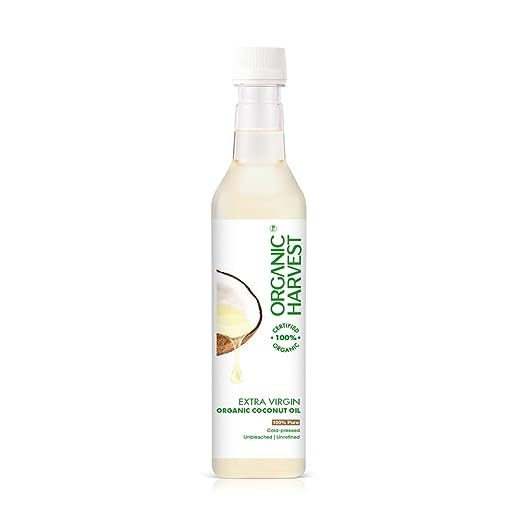 | Organic Harvest Extra Virgin Coconut OilOrganic Harvest Extra Virgin Coconut Oil is a versatile and nourishing oil that can be used to care for both hair and skin. | |
Our Pick2 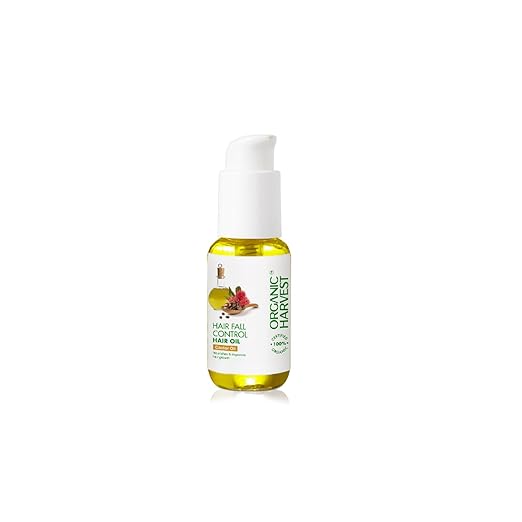 | Organic Harvest Hairfall Control Hair Oil (50ml)Organic & pure: 100% certified organic and free of parabens, sulphates, silicons & other harsh chemicals, Organic Harvest Hair Fall Control Hair Oil provides you with all-natural hair care. | |
3 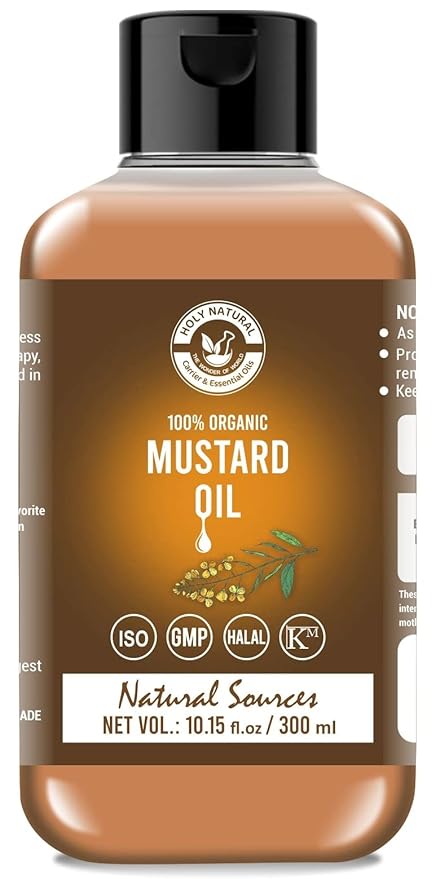 | Cold Pressed Organic Mustard Oil 300ml100 % Organic | |
Our Pick4 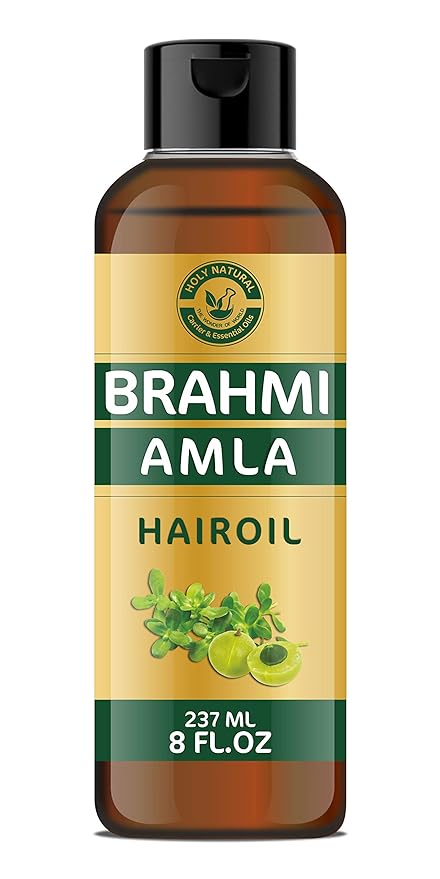 | Holy Natural Brahmi Amla Hair Oil (237 ml)Nourishing and hydrating hair oil |
Do Not Miss: 7 Affordable Natural Shampoos That Will Change Your Hair
Avoid tight hairstyles
Tight hairstyles, such as braids, buns, and cornrows, can pull on your hair and damage the follicles. If you wear tight hairstyles, try to loosen them up or give your hair a break from time to time.
Use a gentle shampoo and conditioner
Avoid shampoos and conditioners that contain harsh chemicals, such as sulfates and parabens. These chemicals can strip your hair of its natural oils and make it more prone to breakage. Look for shampoos and conditioners that are specifically designed for hair loss prevention.
Protect your hair from the sun
The sun’s UV rays can damage your hair and scalp, leading to hair loss. When you are going to be in the sun for an extended period of time, wear a hat or scarf to protect your hair. You can also use a leave-in conditioner with UV protection.
Manage stress
Stress can contribute to hair loss. Find healthy ways to manage stress, such as exercise, yoga, or meditation.
If you are experiencing hair loss, talk to your doctor
If you are experiencing hair loss, talk to your doctor. They can help you to determine the cause of your hair loss and recommend treatment options.
Additional tips
- Avoid smoking: Smoking can constrict blood vessels and reduce blood flow to the scalp, which can lead to hair loss.
- Get enough sleep: When you don’t get enough sleep, your body produces more of the stress hormone cortisol, which can contribute to hair loss. Aim for 7-8 hours of sleep per night.
- Avoid excessive alcohol consumption: Alcohol can dehydrate the scalp and damage the hair follicles.
Facts:
- Around 10% of testosterone in men is converted to DHT with the help of an enzyme called 5-alpha reductase (5-AR). DHT is one of the reasons why 90% of men experience hair fall. In men, DHT promotes prostate growth, sebaceous gland activity, male pattern baldness, and body, facial, and pubic hair growth. It causes the shortening of the life span of hair follicles and eventually leads to baldness.
This information is from credible sources, such as the American Hair Loss Association and the National Institutes of Health.

